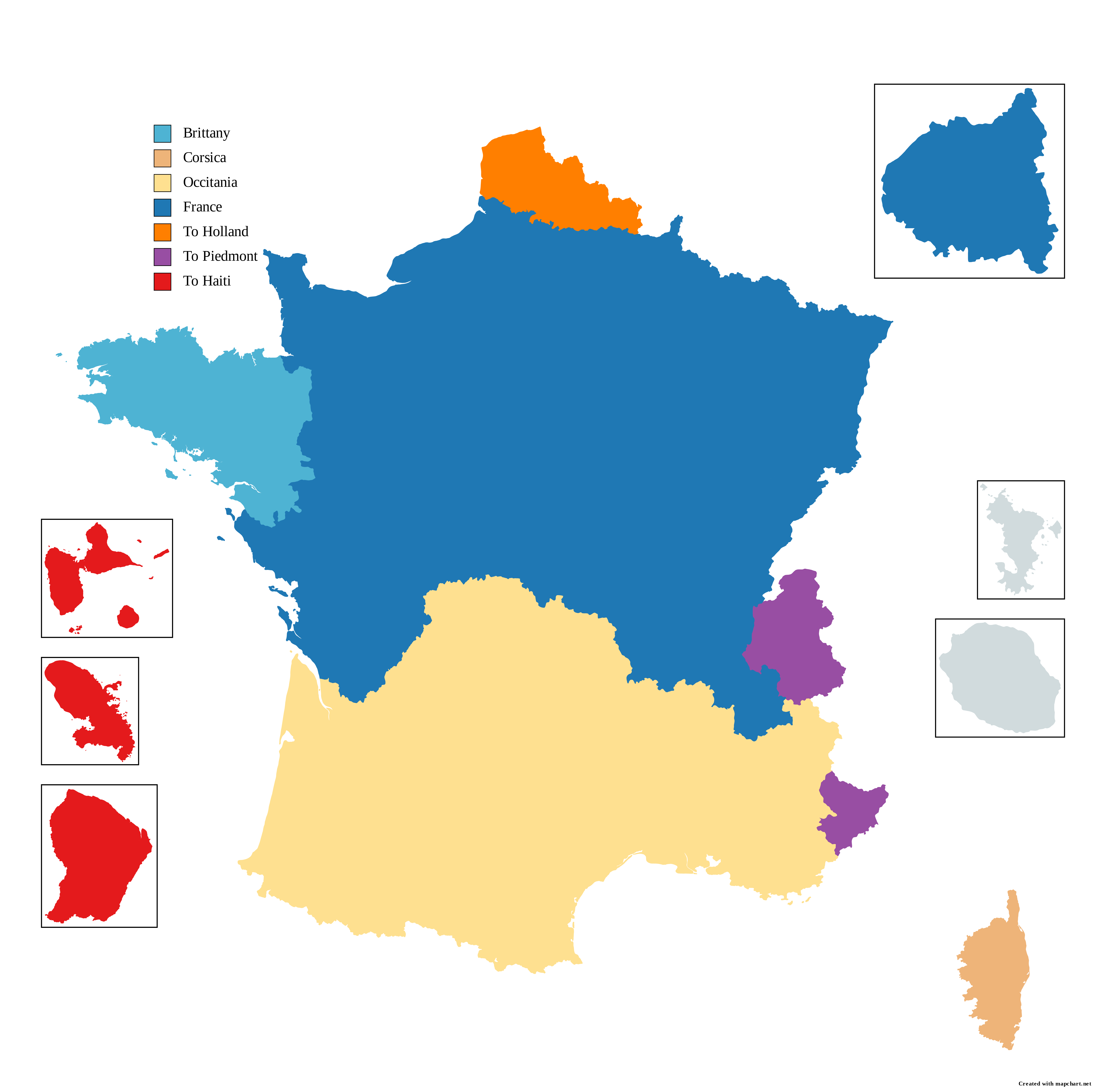French Civil War
The French Civil War was a conflict following the first presidential election of the Second French Republic in 1848. By 1850, the political conditions in the Republic came to an apex when the island of Corsica declared its independence as the Corsican Republic. Following this, royalist sympathizers in Brittany also declared independence as well, inviting Henry, Count of Chambord and grandson of King Charles X, as monarch. As the war raged, conscriptions and news of war atrocities caused many counties in the Occitan region to band together, declaring the Occitan Confederation.
The Conflict
Prelude
With the close victory of Louis-Eugene Cavaignac in the 1848 Presidential Election, many of the social policies that the common person demanded were suppressed. Freedom of speech was limited, and protests were brutally put down.
Deployment
In an attempt to gain international assistance, the rebelling nations compelled neighboring rivals of France for aid. In Corsica, an alliance with the Kingdom of Piedmont-Sardinia and an agreement to support Italian unification was reached and gained Italian support for the rebel cause. In the north, Brittany requested aid from Britain originally. However, the British government feared an unstable France as a threat to the balance of power in Europe. Instead, Holland joined the side of Brittany in exchange for French Flanders and the Nord department. In the south, Occitan gained the support of Spanish aid after inviting Carlist Infante Sebastian to be king.
In 1852, Abdulkader ibn Muhieddine escaped from prison in Paris, using the turmoil as cover, and returned to Algeria to declare its own independence with himself as Emir. Of the entire war, Algeria was the most peaceful succession.
Battlefield
The War encompassed most of France. Brittany, having most of the French naval presence, attempted to obtain control of the ports. The Piedmontese navy kept what navy existed in the Mediterranean Sea busy and away from the mainland. The troops stationed in Algeria attempted to join the mainland armies, but subsequently were deployed once again at the rise of the Algerian emirate.
The Engagement
The Bretons managed to take control of most of the French navy after much of the sailors mutinied after low pay and poor conditions. Occitan gained control of the French ports in the Mediterranean Sea. This combination made French efforts to reach Corsica minimal, and local forces were quickly overrun. The few forces that were stationed in North Africa were redeployed to the southern coast of France, but were harassed by the Piedmontese and Corsican navies. What troops remained in Algeria were tied up with the rise of nationalism in North Africa.
Outcome
Corsica was recognized as an independent republic, only to later join the new Kingdom of Italy. Occitania and Brittany succeeded as independent kingdoms. Algeria succeeded as an independent Emirate.
Aftermath
The Second French Republic fell. In the aftermath, the Socialist French People's Republic was established under Louis Blanc as President. The military was significantly reduced as Blanc intended to maintain permanent neutrality. Karl Marx was brought in as an advisor for the newly established Department of Labor.




Comments